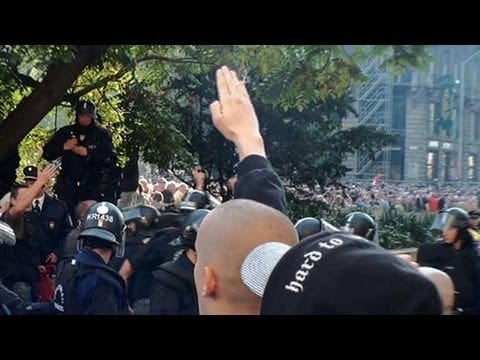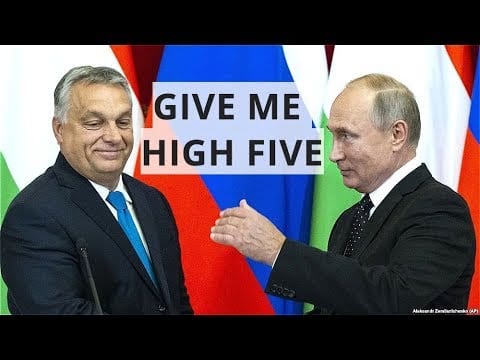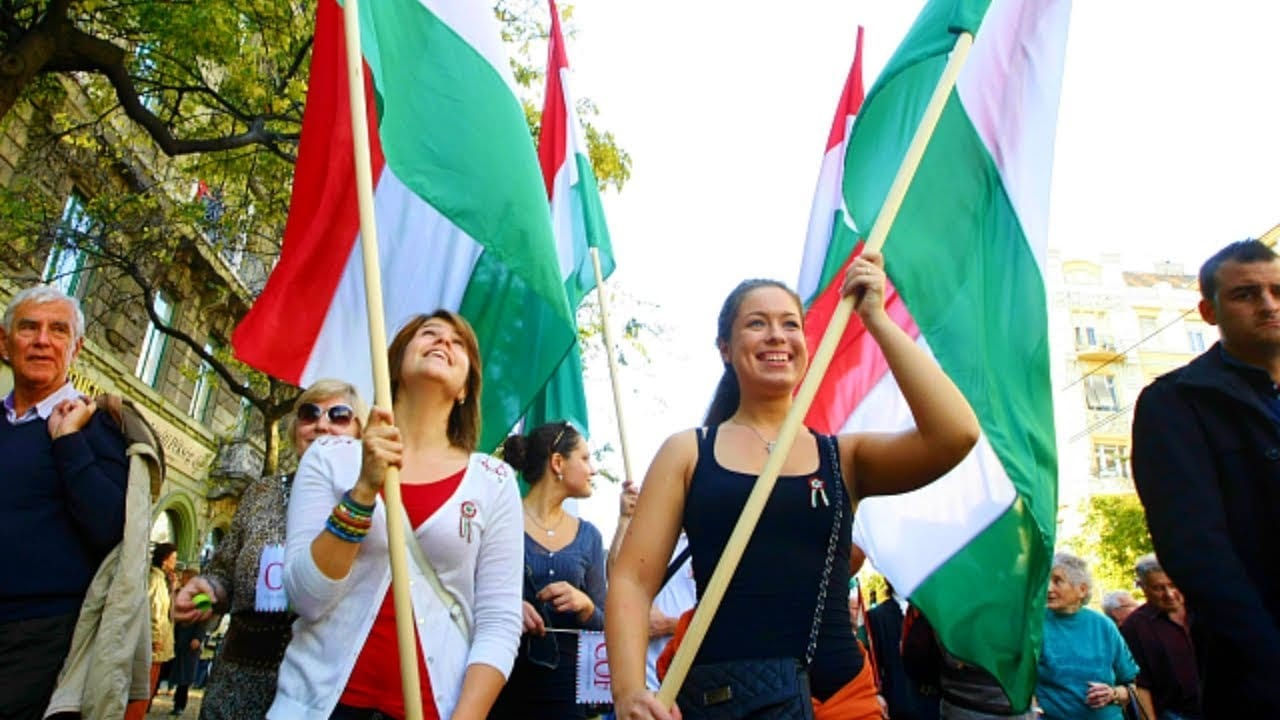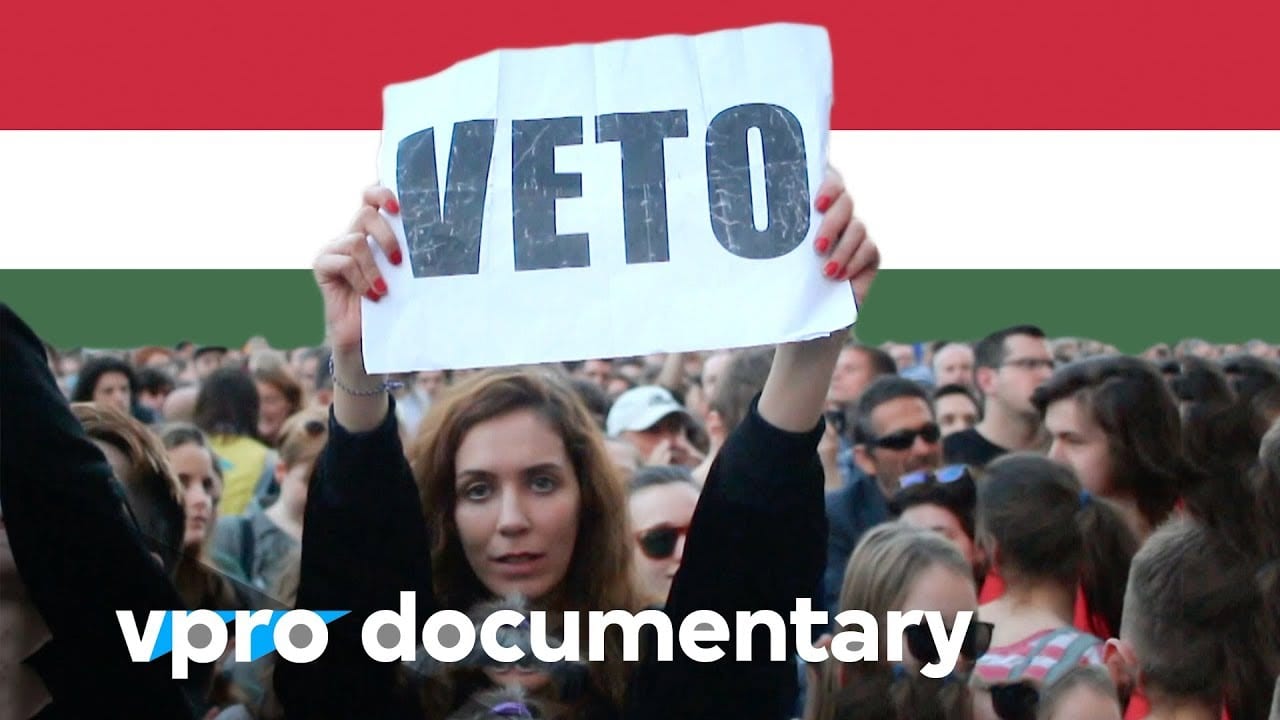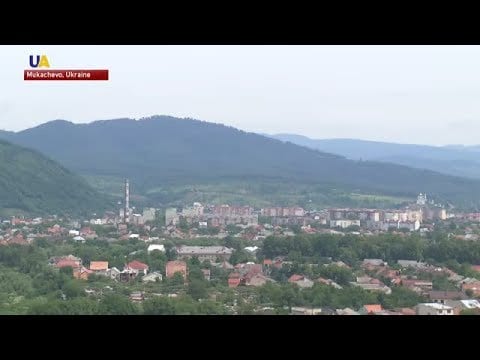Today’s EU is far from its former unity: we are increasingly confronted by those opposing the idea of an “open society,” but who are ready to live in a confederation format, where a certain state will play the major role rather than the Union. And it was not Brexit that gave rise to such appeals – it was the ascent of autocratic leaders across Eastern Europe.
The most striking example is Hungarian Prime Minister Viktor Orbán – someone who once so actively fought against the Soviet past, suddenly become an actual advocate of the Soviet-style present.
Hence, the harassment of mass media, neglect of independent judiciary, high profile corruption, with Orbán increasingly resembling Vladimir Putin, or more precisely, becoming Putin’s even smaller copy. Therefore, there is no surprise that someone, who back in 2009 so zealously fought with the Russian gas monopoly and resisted the seizure of Hungary’s chemical facilities, just handed over to Russia the country’s entire nuclear industry. Moreover, now he is demanding that Brussels not prevent Russian gas flows through the southern pipe to Central Europe.
At the same time, the Hungarian conservative, together with the Italian populists and the Czech opportunists, keep insisting on the need to lift sanctions imposed against Russia in connection with the Ukraine conflict.
Let’s ask ourselves a question: can we lift sanctions today, allowing Russia to pursue its aggressive policy in Ukraine? However cynical it may sound, it’s no. We can’t. That’s because in this case, we run the risk of facing a powerful adversary, willing to restore their former Soviet influence.
Ukraine again – however cynical it may sound – remains a kind of an outpost against Russian destructive policies and aggression threatening all civilized Western democracies. Everyone seems to understand this, except for Viktor Orbán.
The head of the Hungarian government is not just trying to play along with Putin in his campaign to weaken the EU. He also intends to take part in dismembering other countries, to make many Hungarians’ dream come true, that is, to reunite all the lands that Budapest claims were illegally snatched from Hungary with the Treaty of Trianon signing. Now we see that Orbán is set to start with the Ukrainian Zakarpattia.
Hungary has long been working out the idea to return territories the country has lost throughout history. Judging by the outcome of the latest parliamentary elections, most Hungarians support the project. It’s us, Europeans, who are partly to blame: for the past 15 years, the EU has done nothing to change the ideology in Hungary; we failed to convince both the local government and the people there of the advantages of globalization and open society. It turns out, not everything rests on the economy, market relations, and democratic values.
Hungary aggressively protects their interests in Serbia, where it formed a broad territorial and full-fledged national-cultural autonomy in Vojvodina; Slovakia, where Budapest currently avoids unnecessary confrontation trying to enlist Bratislava’s support in his confrontation with Brussels and Romania, where the main goal is to regain Transylvania (Szekely Land).
Why did the Hungarian Prime Minister choose Ukraine and its western lands (Transcarpathia) as his main target? It is because the Crimea annexation happened. Whether anyone likes it or not, Russian seizure of the Ukrainian peninsula has set a precedent. Anyone today could take advantage of it – both at the borders and in the heart of Europe. This is also about a major prevalence of Hungarian communities living in several areas of the Transcarpathian region. An important note: it is only a few areas within a particular region. And, of course, these communities’ financial dependence on Budapest is on the table.
Nevertheless, let’s take a look at the real numbers. Of 1.2m people living in the Ukrainian region bordering Hungary just over 150,000 are Hungarians. This is not the majority seen in the Serbian province of Vojvodina – on the contrary, it is a clear minority. Does this mean that Ukraine must protect the rights of any ethnic group, including the Hungarians? It definitely does. However, this in no way means that Kyiv should put the interests of any minority above the law.
The conflict between Budapest and Kyiv began in 2017, after the Ukrainian parliament passed a law on education. The new legislation has seen enough criticism and support at the same time, while the Venice Commission found no violations in its text concerning the infringement of national minorities rights.
Indeed, the law defends the Ukrainian language, making it the main language of instruction at schools. Starting from middle classes, all schools are obliged to teach in Ukrainian, while some classes can be taught in the languages of EU states (one of which is Hungary, I must recall).
The Orbán government responded to these initiatives with an ultimatum, blocking the highest-level meetings of the NATO-Ukraine Commission, turning them down to the level of ambassadors, while Hungarian foreign minister Peter Szijjarto threatens to block Ukraine’s EU integration process under the Association deal. At the same time, Hungary allocates millions of euros to support pro-Hungary political movements in Transcarpathia that is, brazenly interfering in the neighboring state’s internal affairs – something Szijjarto does not mention in his statements on Ukraine.
Budapest also funds Hungarian organizations abroad through charities, organizes seminars and round tables, attracting the youths. Through the Robert Schumann Institute in Budapest, Hungarians also fund experience exchange programs for young Ukrainians living in the bordering region. In fact, this is about training young politicians who will one day become part of local governments and promote Hungarian interests.
What is the most surprising here is that, while failing to secure any support in Brussels, Budapest found it in Moscow. Hungarian officials met with their Russian counterparts, to slam the Ukrainian language law. Moreover, Russia’s Deputy Foreign Minister Vladimir Titov agreed with Peter Szijjarto to jointly oppose Ukraine’s legislative moves and hinder its educational reform.
The saddest thing though is that this, and many other things, has being done under the cover of the EU. Yes, it is precisely their experience of integration into the EU that the Hungarian authorities use to cover up their meddling in another country, which is not even an EU state. A very simple question arises: would we really choose to be complicit in Viktor Orbán’s outright violations?
We must definitely avoid a conflict being created and escalated on the EU borders. However, it’s time for the European Union to look into the ways to fix the situation. We have seen a rather dangerous move by Hungary whose consul has been openly handing out passports to representatives of Hungarian minority living in Ukraine. The danger stems from the fact that in the Ukrainian territory, in contrast to a number of EU states, dual citizenship is officially banned.
Budapest, once so wary of Ukraine launching protectionist policies, has now become the very force pushing Kyiv toward the adoption of the new legislation— the new language bill, which had already passed its first reading in the Ukrainian parliament. Now Ukraine once again hears Hungarian officials voicing an ultimatum. This means that escalation is inevitable, with the next step of the Ukraine authorities possibly being passing changes to the law on citizenship.
It would be less complicated though if it were all about citizenship issues and Hungary’s will to boost population numbers. In fact, we are well aware that it’s not Hungarians who Viktor Orbán and his government believe are so important – it’s the lands that used to belong to Austria-Hungary and a revanchism-focused flirting with voters. Indeed, Orbán does need a cheaper labor force, but only those who always return home, to Western Ukraine. What he really craves for is a territory that will later seek to become part of the Great Hungary. This is the reason why the Hungarian government has also been campaigning among the Ukrainian nationals living in the bordering region.
Meanwhile, the situation could spin out of control, which is exactly what Moscow seeks to exploit. The Hungarian government recently approved a classified plan on Ukraine. It allows Budapest to deploy troops across the Ukrainian border without NATO’s consent in case an “emergency” arises.
Interestingly, a Hungarian intelligence agency recently received a number of specific instructions: to strengthen its operations not only in the Transcarpathian region, but also in Ukraine as a whole; and create conditions for economic and political expansion in areas where Hungarians reside. It has also been ordered to strengthen partnership cooperation with Russian intelligence.
At the same time, the Russian Wolf International Special Combat Training Center has been boosting its presence in Hungary. Its founder is a Russian national who has been put on the U.S. sanctions list. Most importantly, the organization has already opened a real network of cells.
This is happening amid Hungary’s efforts to boost the total number of military reservists. Hungarian defense minister István Simicskó this August announced the need for 20,000 reservists to join the already 30,000-strong army. And this is despite the fact that last year the Hungarian army started the practice of signing up Hungarians living beyond the country’s borders, most of them, residents of Ukraine.
Now let me ask you the most important question that we all will soon face. What shall we do if a conflict breaks out on the Hungarian-Ukrainian border? What about the EU and NATO treaties? After all, we are now talking about the destructive actions of a NATO ally and an EU member state which maintains political and economic ties with Russia, in relation to a non-EU and non-NATO state which at the same time has been actively repelling the Kremlin’s aggression in close proximity to our eastern borders. So what do you think? Could an outside player be able to provoke a conflict, as it had already happened in history?
Don’t you see that we finally have to think about our own safety? Perhaps it is time that we engage in the negotiation process and take a closer look at the general situation in Hungary. These are all questions demanding answers. Today.
